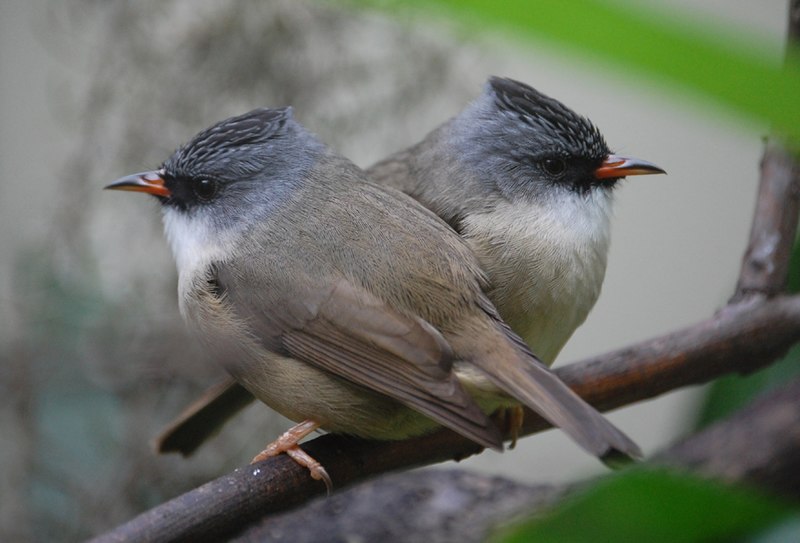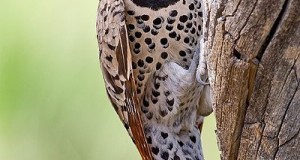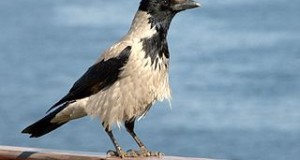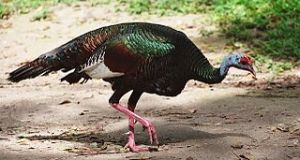 The Black-Chinned Yuhina, Yuhina nigrimenta, is one of the few small non-seedeaters that have gained favor in private bird collections. While its dietary needs are not easy to meet, the Yuhina is an excellent choice for experienced keepers looking for an unusual, active bird that is not often seen in US collections.
The Black-Chinned Yuhina, Yuhina nigrimenta, is one of the few small non-seedeaters that have gained favor in private bird collections. While its dietary needs are not easy to meet, the Yuhina is an excellent choice for experienced keepers looking for an unusual, active bird that is not often seen in US collections.
Natural History
The Black-Chinned Yuhina is classified as an Old World Babbler, Family Timaliidae. Several of its relatives, including the Pekin Robin and the Whiskered Yuhina (please see photos), are popular in the zoo and pet trades, while others are scarcely studied; new species are described each year.
These minute birds top out at 4 inches in length, and are extremely acrobatic…I’m always reminded of Chickadees when watching Yuhinas in action. Their plumage is a pleasing combination of olive, brown and black, tinged with buff highlights, and the head is topped by long feathers that can be erected into a crest.
The Black-Chinned Yuhina occupies a huge range extending from Bangladesh through India and China to Cambodia and Vietnam.
Housing
Despite their small size, Yuhinas require lots of room – their antics can only be appreciated in a large flight cage or outdoor aviary.
 Be sure to include live or artificial plants…tiny enough to be caught by predators as small as mantids, Yuhinas are ever-wary and appreciate cover. Even well-acclimated birds will refuse to breed unless provided with a dense plant in which to construct a nest – a pair I cared for nested in a hanging, potted spider plant. Large hanging silk plants, designed for captive reptiles, work well in indoor Yuhina cages.
Be sure to include live or artificial plants…tiny enough to be caught by predators as small as mantids, Yuhinas are ever-wary and appreciate cover. Even well-acclimated birds will refuse to breed unless provided with a dense plant in which to construct a nest – a pair I cared for nested in a hanging, potted spider plant. Large hanging silk plants, designed for captive reptiles, work well in indoor Yuhina cages.
Diet
Yuhina-feeding is an art – I enjoy the challenge, but the work involved is not for everyone. The wild diet consists of fruit, insects and nectar; captives will not thrive if a variety of each is not available.
Yuhina bills are unbelievably thin, and so food must be finely grated. Plums, pears, mangos, grapes, oranges and other soft fruits, coated with ground Softbill Select and Egg Food, should be offered twice daily (discard uneaten food). A bit of nectar should be given, but if allowed to they may eat this to the exclusion of all else. Honey-soaked sponge cake, an old bird-keepers favorite, makes a great treat.
Insects must be provided each day, with variety being vital. Mealworms and waxworms are too thick-skinned, but 10 day old and ½ inch crickets will be accepted. Tiny flies, moths, gnats, aphids and other invertebrates are essential for good health and critical for pairs with chicks – I’ve always maintained insect traps, such as the Zoo Med Bug Napper, to help meet the needs of the softbills under my care (please see article below). Yuhina keepers should also consider maintaining colonies of flightless houseflies and fruit flies (available commercially).
Dried Shrimp should be offered and used regularly if accepted.
Further Reading
 Notes and photo, wild Yuhinas
Notes and photo, wild Yuhinas
Collecting Insects for Pet Birds
Black Chinned Yuhina image referenced from wikipedia and originally posted to flickr by Fisherbray
Whiskered Yuhina image referenced from wikipedia and originally posted to flickr by Yathin
Pekin Robin image referenced from wikipedia and originally posted by ltshears and to flickr by BelgianChocolate
 That Bird Blog – Bird Care and History for Pet Birds
That Bird Blog – Bird Care and History for Pet Birds



